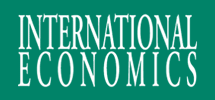
<< N°139
| N°139 | ||
| Issue Q3 2014 | ||
| Corruption, capital account liberalization, and economic growth: Theory and evidence | ||
|
Takuma Kunieda Keisuke Okada Akihisa Shibata |
||
| We investigate, both theoretically and empirically, how the negative effect of government corruption on economic growth is magnified or reduced by capital account liberalization. Our model shows that highly corrupt countries impose higher tax rates than do less corrupt countries, thereby magnifying the negative impact of government corruption on economic growth in highly corrupt countries and reducing the impact in less corrupt countries if capital account liberalization is enacted. Empirical evidence obtained from an analysis of panel data collected from 109 countries is consistent with our theoretical predictions, namely the interaction term of government corruption and financial openness has a significant and negative impact on economic growth, implying that financial openness magnifies the negative effect of government corruption on economic growth. Our theoretical and empirical results contribute to the recent policy debates on the merits and demerits of capital account liberalization. |
Abstract |
|
| Economic growth ; Government corruption ; Capital account liberalization ; Two-country model ; | Keywords | |
| O40 ; O43 ; F43 ; E62 ; | JEL classification | |
| Order form |